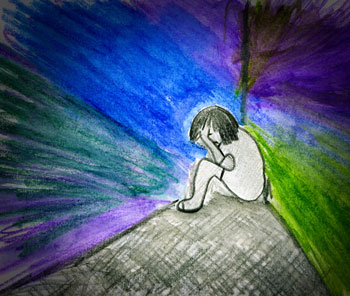What Is Trauma?
 Some events that happen to us as children or adults are so overwhelming and inherently frightening that they cause temporary, and in some cases permanent, changes in our physical and psychological responses to stress. Post-Traumatic Stress Disorder and other debilitating responses to trauma result when the body's normal psychological defenses against stress become overwhelmed. Thus, long after the initial trauma occurs, people may respond as if the traumatic event is currently happening, experiencing strong, painful feelings that may result in self-defeating or even self-destructive behaviors. Symptoms can include re-experiencing the event, avoiding situations that remind you of the event, and an easily triggered physical stress response. Some people’s symptoms may be more subtle or less easily connected to one traumatic event.
Some events that happen to us as children or adults are so overwhelming and inherently frightening that they cause temporary, and in some cases permanent, changes in our physical and psychological responses to stress. Post-Traumatic Stress Disorder and other debilitating responses to trauma result when the body's normal psychological defenses against stress become overwhelmed. Thus, long after the initial trauma occurs, people may respond as if the traumatic event is currently happening, experiencing strong, painful feelings that may result in self-defeating or even self-destructive behaviors. Symptoms can include re-experiencing the event, avoiding situations that remind you of the event, and an easily triggered physical stress response. Some people’s symptoms may be more subtle or less easily connected to one traumatic event.
Often a traumatic experience can be healed through support from friends, family and one’s community. In some situations, however, the trauma overwhelms our natural resources for recovery. In these cases therapy can be extremely helpful in creating a safe environment in which to challenge the illusion that the past traumatic event is still “in control”. In treatment with a skilled psychotherapist clients shift from feeling like helpless victims responding to painful past events and instead become positive agents and actors in their current life stories. Some of the powerful, evidence-based techniques our therapists use include: EMDR (Eye Movement Desensitization and Reprocessing), Trauma-Focused CBT (Cognitive Behavioral Therapy), Parent-Child interaction Therapy, and Brief, Depth-Oriented Psychotherapy.

